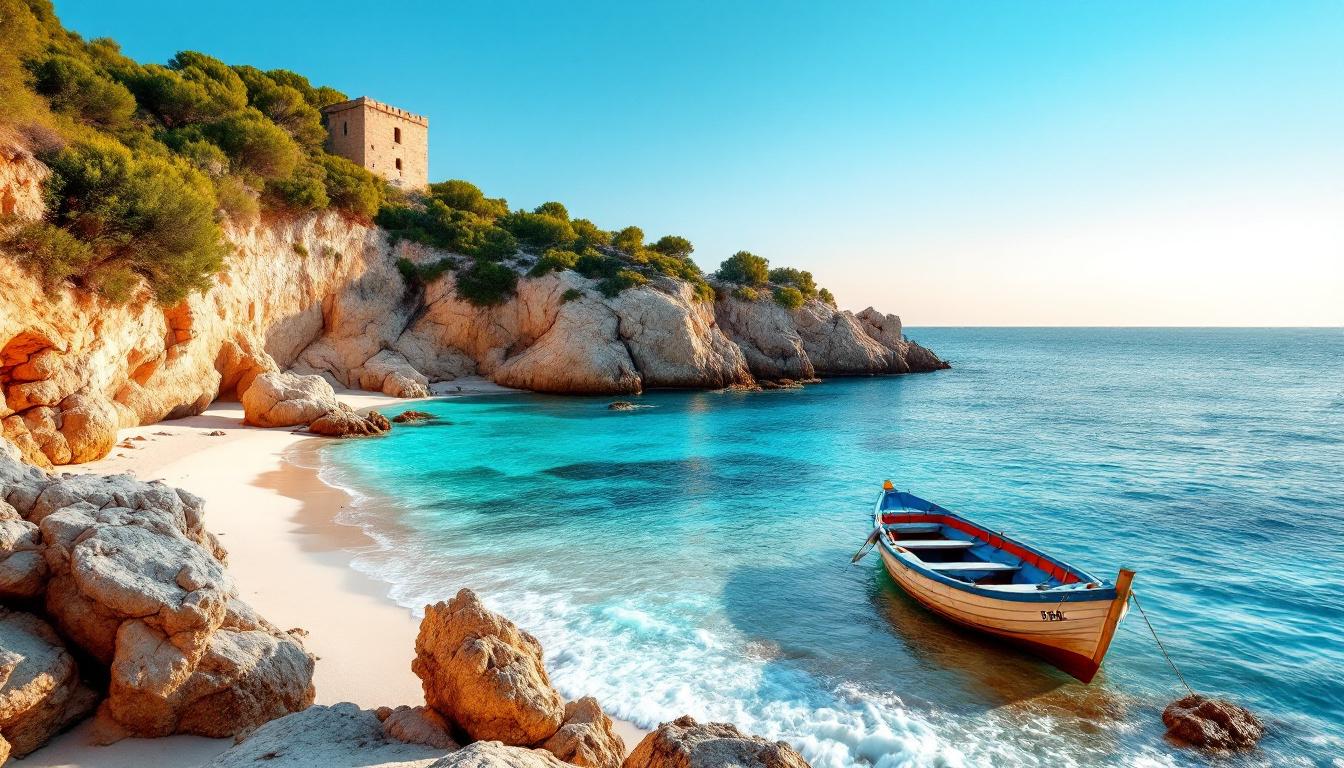The 101,000 Catalans who call Menorca home have spent decades perfecting an art that bigger Mediterranean destinations never mastered: keeping their paradise authentically theirs. While Mallorca drowns under 16 million annual visitors and Ibiza transforms into Europe’s party playground, Menorcans quietly implemented the Mediterranean’s most sophisticated tourism protection system.
This isn’t accidental preservation. It’s deliberate cultural guardianship that transforms every visitor into a privileged witness to what Mediterranean islands looked like before mass tourism arrived. The locals don’t just prefer it this way—they’ve legally engineered it to stay this way forever.
What emerges from their protection efforts isn’t tourism restriction, but tourism perfection. Every cove, every prehistoric monument, every traditional village exists exactly as Menorcans want you to experience it: authentic, unhurried, and respectfully shared with those who understand its irreplaceable value.
The legal framework locals use to control their island
UNESCO Biosphere Reserve powers that work
Menorca achieved what no other Balearic island managed: UNESCO extended their Biosphere Reserve status in 2019 to cover 514,485 hectares of surrounding marine area, creating the largest protected marine zone in the Mediterranean. This legal designation gives locals unprecedented power to reject tourism developments that other Spanish destinations can only dream of blocking.
The revolutionary accommodation cap system
Local environmental groups successfully lobbied for a “2-for-1” mechanism that caps tourist beds at exactly 84,058 permanent spots. Every new hotel bed requires eliminating two existing ones, creating scarcity that naturally filters mass tourism while encouraging higher-quality experiences that locals actually support.
Vehicle restrictions that actually eliminate crowds
Summer car access limits with legal teeth
Menorcan communities used their 2023 Biosphere Reserve Law to implement vehicle restrictions during peak months (June-September). Studies confirmed 30% excess vehicles in July and August, prompting locals to successfully lobby for parking limitations that require 15-minute walks to pristine beaches—instantly eliminating casual tour bus accessibility.
Local activism that forced government acknowledgment
Resident protests in 2025 created undeniable pressure on local officials, who finally admitted the island suffers from tourism vehicle overflow. The Mobility Councillor’s public acknowledgment of the problem represented a major victory for local advocacy groups who demanded action over empty promises.
Environmental protection creating authentic experiences
The Plastic Free Menorca Alliance success
Local communities created a certification system for businesses that eliminate single-use plastics, removing 17,800 kg of plastic waste annually from coastal areas including pristine beaches like Cala Turqueta. This isn’t environmental theater—it’s genuine community commitment that creates the authentic Mediterranean experience visitors remember forever.
Infrastructure projects that prioritize nature over convenience
Even major construction projects reflect local environmental priorities. The Ferreries bypass required transplanting holm oaks and olive trees, creating 200+ wildlife escape routes, and planting 11,700 shrubs. Every development decision prioritizes the island’s 220 bird species and 1,000 plant species over tourism convenience.
Cultural preservation through tourism transformation
Rural heritage emphasis over beach club culture
Menorcan communities consciously promoted hiking, birdwatching, and cultural immersion over nightlife and beach clubs. This strategic choice attracts visitors who respect local values and spend money supporting authentic experiences rather than imported entertainment that benefits external corporations.
Democratic participation in tourism policy
Local advocacy groups demand full public transparency and community feedback on all tourism studies and policies. This participatory approach ensures protection measures reflect genuine community priorities rather than external tourism industry pressures that destroyed authenticity on neighboring islands.
Menorcan locals proved that limiting tourism expansion while progressively reducing accommodation capacity creates sustainable prosperity that protects resident well-being, enhances visitor experiences, and preserves irreplaceable natural resources. Their success provides a replicable model for communities seeking authentic Mediterranean experiences.
The 101,000 Catalans who guard Menorca aren’t trying to eliminate tourism—they’re perfecting it. Visit with respect for their extraordinary achievement, and you’ll understand why they fought so hard to keep their island exactly as you’ll find it: authentically, protectively, and permanently theirs to share on their terms.
**Internal Links:**
– Prince Edward Island article – Similar local protection efforts
– Costa Rican hidden beaches – Environmental protection parallels
– French village protection – European preservation strategies
Frequently asked questions about visiting protected Menorca
How do locals actually enforce tourism limits on Menorca?
Menorcan communities use legal UNESCO Biosphere Reserve powers, vehicle restrictions during summer months, and accommodation caps that require eliminating two beds for every new one. These aren’t informal preferences—they’re legally enforced policies with community support.
What’s the best way to respect local protection efforts while visiting?
Choose accommodations with Plastic Free Balearics Certification, use public transport or walk the 15 minutes from restricted parking areas, and focus on hiking, cultural sites, and local restaurants rather than beach clubs that don’t align with community values.
Why don’t other Balearic islands copy Menorca’s protection model?
Menorca achieved UNESCO Biosphere Reserve status early and built community consensus around preservation over profit maximization. Mallorca and Ibiza developed mass tourism infrastructure before implementing protection measures, making transformation much more difficult economically and politically.
